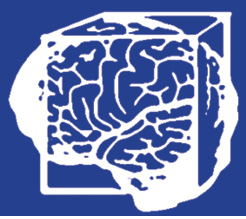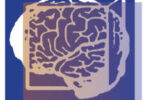by Marco C. Janssen, UTInnovation, the Netherlands

Now that, for more than one year, we have experienced the pandemic, it is time to think about what we have learned and how we are going to ensure that we find a way forward…
Since the discovery of SARS-CoV-2 more than twelve months have passed in which we have seen many shortcomings in the way our society is organized and managed. From my perspective most politicians have no clue on how to manage a crisis this size. We have experienced the consequences of decisions that have disrupted our daily life in many ways. What is shocking to me is that, as per the report of the International Labor Organization, these decisions have cost the equivalent of over 255 million full time jobs thus far, plunging a very large part of our society into poverty.
In many countries the health care system is not capable of dealing with such a crisis despite the relentless efforts of our health care professionals. At places the normal treatment of diseases has been put on hold due to a lack of capacity, likely leading to a large number of early deaths. We have witnessed two generations of students being deprived of proper education due to the lockdowns and who knows how long the effects of this education gap will be felt. A more hidden side effect is that as a consequence of the lock downs the number of people with mental issues is said to have increased exponentially. And now we are starting to witness the economic impact of this crisis as thousands of businesses have closed or will close despite governmental support.
What is clear is that the crisis has increased social inequality, made rich people richer and has plunged millions into poverty and despair. At the same time governments have been pumping billions into their economy trying to save what could be saved, yet has anyone asked the question who is going to pay these bills if a significant part of the population is left without work? Is this the beginning of a long and devastating economic crisis, one the world has never seen? Have the knee-jerking responses from politicians pushing us from one lock down to the next really helped us manage the pandemic, or should we conclude that we have to accept that viruses and bacteria can cause pandemics and that with a pandemic we are going to witness higher numbers of deaths?
I am not saying that we should not value life, and that we should not try to save as many people as we can, but I do think that we have lost perspective in a way. Is it defendable to try and save pandemic victims at all costs even when this means causing devastation and death for another part of the same society? Have we considered thoroughly the long-term consequences of the measures implemented? Have we lost perspective on the fact that death is a part of life, and that in fact it is the only certainty we have in life?
I guess this will be a difficult discussion as many people will have opposing viewpoints, yet what I find disturbing is that I have seen very few influential people provoking the discussion. The presented opinions have been single sided showing that we have accepted the dogma that we need quarantines, lock downs and restrictions even if this means that the cure can be worse than the disease…
So now we have vaccines and there is light at the end of the tunnel. Finally, I hear many people say… Yet how will we come out of this pandemic? History has shown that humanity is great in making promises in times of pandemics yet, once the situation gets back to normal, we tend to quickly forget these promises and go back to the same behavior as before the pandemic. I really hope that this time we will have learned a few valuable lessons.
Now I think I can draw a few conclusions:
- First, we humans, should stop abusing nature as this has caused multiple dangerous virus mutations
- Second, we should have a much better and transparent coordination of counter measures against pandemics as the disperse and almost random measures have proven to be very ineffective
- Third, we need more balanced discussions on the effects and the impact of political decisions. We should have multi-disciplinary teams looking at the pros and cons of every measure proposed. We must accept that politicians are often not trained to be crisis managers and should lean on “experts” to tell them what to do
- Fourth, we should invest in an easier accessible and better equipped health care system. The access to health care should be a universal right, and we should stop treating the medical system as a business, but rather as a societal necessity
- Fifth we need to accept that death is a part of everyday life and that every life matters not only the lives of pandemic victims
Now that I have laid down my views, I would like to end with a positive outlook. As famous Dutch football player Johan Cruyff used to say, every disadvantage has an advantage. Not only have we become more aware of the importance of our social contacts, we became creative in organizing our work and social life and we should use this to our advantage.
We should remember that we have no time to waste and that the people around us matter, just like this planet and its well-being matters to all of us.
If we agree to not forget the valuable lessons the pandemic has taught us, the future will be bright and happy for all of us.
Biography:
Marco C. Janssen is the CEO of UTInnovation LLC and the former Director of the Smart Grid PMO at the Dubai Electricity and Water Authority. He received his BSc degree in Electrical Engineering from the Polytechnic in Arnhem, Netherlands and has worked for over 27 years in the field of Smart Grid, Protection, Control, Monitoring, Advanced Metering Infrastructures, Distribution and Substation Automation. He was a member of IEC TC57 WG 10, 17, 18, 19, the IEEE PES PSRC and CIGRE B5 and D2 WGs. He was the convenor of D2.35 and editor of the Quality Assurance Program for the Testing Subcommittee of the UCA International Users Group. He holds one patent, has authored more than 58 papers, is co-author of four Cigre Technical Brochures and two books on Smart Grids and Electrical Power Substations Engineering and is the author of the “I Think” column in the PAC World magazine.








